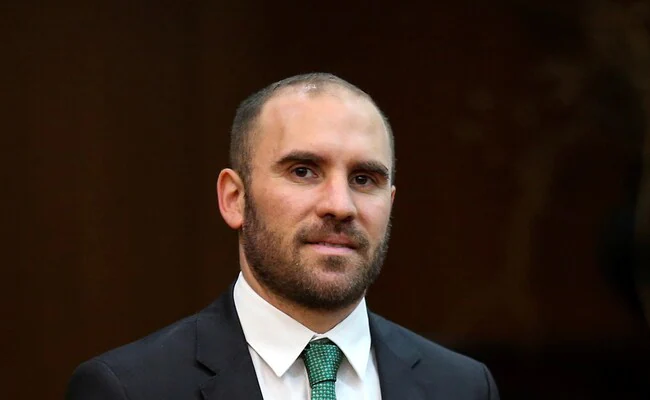[ad_1]

Martin Guzman was tasked with renegotiating an IMF debt that Argentina said it could not repay. (File)
Buenos Aires:
Argentina’s economy minister, Martin Guzman, who led debt renegotiations with the International Monetary Fund, announced his resignation in a statement shared on Twitter on Saturday.
Addressing President Alberto Fernandez, Guzman did not say why he resigned but called on the center-left leader to mend internal divisions so that “the next minister does not suffer” the same difficulties he did.
“It will be essential that you work on an agreement within the ruling coalition,” he added.
His resignation comes two weeks after Vice President Cristina Kirchner, a former president who has been a constant critic of the government, gave a speech attacking Fernandez’s economic management.
As economy minister, the 39-year-old Guzman was tasked with renegotiating a $44 billion debt with the IMF that Argentina insisted it could not afford to repay.
The original debt of $57 billion — the last tranche of which Fernandez declined after succeeding his liberal predecessor Mauricio Macri, who had solicited the loan — was the largest ever issued by the IMF.
Despite resistance from Kirchner, Guzman managed to agree a deal and save Argentina from defaulting.
But Guzman was often faced with hostility from the Peronist Justicialist Party, the major force in the ruling coalition that counts both Fernandez and Kirchner as high profile members.
Guzman said whoever replaces him will need “centralized management of the necessary macroeconomic political instruments to consolidate the progress made and face the challenges ahead.”
Agricultural powerhouse Argentina may have the third largest economy in Latin America but it has been in economic crisis for years, with inflation of more than 60 percent in the last 12 months.
The country was already struggling badly with rising poverty and a depreciating currency before the coronavirus pandemic exacerbated matters.
The IMF deal included provisions to contain inflation and reduce the budget deficit from three percent in 2021 to parity by 2025.
Guzman’s detractors within the ruling coalition hit out at him over perceived excessive zeal in tackling the budget deficit and his monetary policy.
He complained several times that these criticisms sent worrying signs to already jittery markets, making his job ever harder.
In a recent report, the Eurasia Group political risk consultancy said the internal divisions would not be resolved any time soon.
“Infighting within the administration will continue to worsen, further hurting the administration’s ability to develop a coherent policy plan,” said Eurasia.
Although he did not reveal what his next post would be, Guzman said he would “continue working and striving for a fairer, freer and sovereign homeland.”
Fernandez has yet to comment on the resignation of one of his closest allies.
(Except for the headline, this story has not been edited by NDTV staff and is published from a syndicated feed.)
[ad_2]
